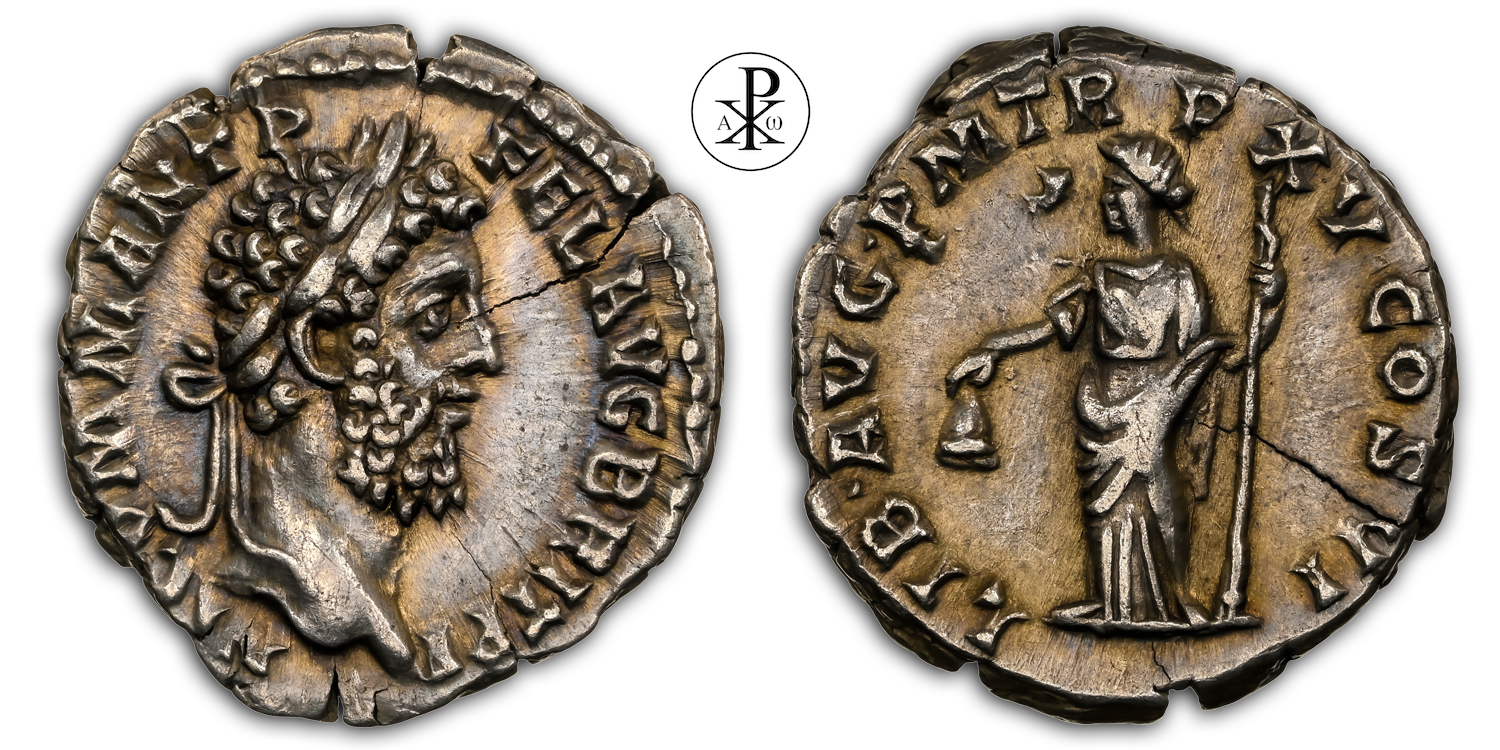Imperator Caesar Marcus Aurelius Commodus Antoninus Augustus
Reign: Commodus
Mint: Rome
Date: 190 AD
Nominal: Denarius
Material: Silver
Diameter: 18mm
Weight: 3.51g
Reference: RIC III Commodus 208
OCRE Online: http://numismatics.org/ocre/id/ric.3.com.208_denarius
Rare: R1
Provenance: Heritage Numismatics Dallas, USA (Auction 232308 February 2023, Lot 64114)
Pedigree: –
Obverse: Head of Commodus, laureate, right
Inscription: M COMM ANT P FEL AVG BRIT P P
Translation: Marcus Commodus Antoninus Pius Felix Augustus Britannicus Pater Patriae
Translation: Marcus Commodus Antoninus, the pious, the fortunate, Augustus, conqueror of the Britons, father of the nation
Reverse: Libertas, draped, standing front, head left, holding pileus in right hand and rod in left hand
Inscription: LIB AVG P M TR P XV COS VI
Translation: Libertas Augusti, Pontifex Maximus, Tribunicia Potestate Quinta Decima, Consul Sextum
Translation: Freedom of the Augustus, high priest, holder of tribunician power for the 15th time, consul for the sixth time
Comment: Financial management under Commodus was particularly bad. Partly as a result of the senseless expenditure on competitions and games of all kinds, partly as a result of the lavish gifts to the people, there was a great shortage of money (Dio LXXII 16, 1-3. Comm. 16, 8-9). Commodus had numerous coins minted and issued with Liberalitas Augusti; LIB I in 175 AD, LIB II in 177/178 AD, LIB III in 180 AD, LIB IIII in 181 AD, LIB V in 182 AD, LIB VI in 185/186 AD, LIB VII in 190 AD, LIB VIII and LIB IX then for the last time in 192 AD. This lack of money was remedied by confiscations and the sale of offices, as well as by robbery and threats. This Liberalitas issue of Commodus is again related to the emperor’s „lucky“ survival of a precarious situation – in this case the fall of Cleander; a Phrygian, was born into slavery and probably freed already under Marcus Aurelius. He played an important role from the beginning of Commodus‘ reign. Thus Cleander had already established a personal relationship with Commodus in his childhood days, having been entrusted with his supervision at times. As „a cubiculo“ he was already an influential person during the dominance of the praetorian prefect Perennis. When discontented Roman soldiers from Britain confronted the emperor in AD 185 to demand the head of Perennis, he is said to have advised Commodus to drop the prefect. With the fall of the Perennis, Cleander became the most important person in the emperor’s circle. Under Cleander’s influence, Commodus had moved closer to the Senate again and restricted the emperor’s beneficia to the people. However, Cleander is said to have been greedy and therefore sold both offices and senatorial dignities. He was generally hated by both the nobility and the people. As a result of a famine and a resulting hunger revolt, he was abandoned to the angry mob by Commodus (end of AD 189).
